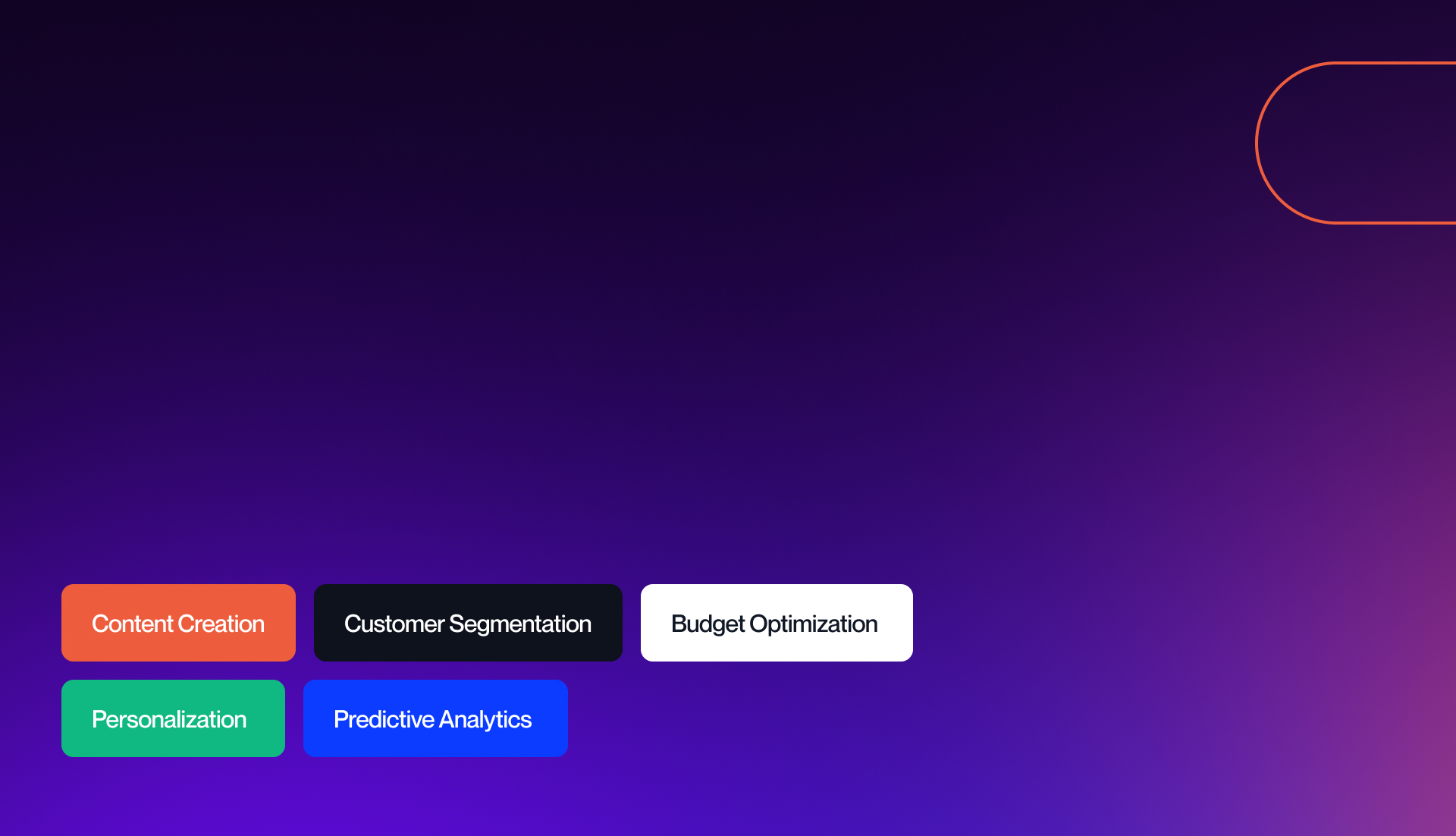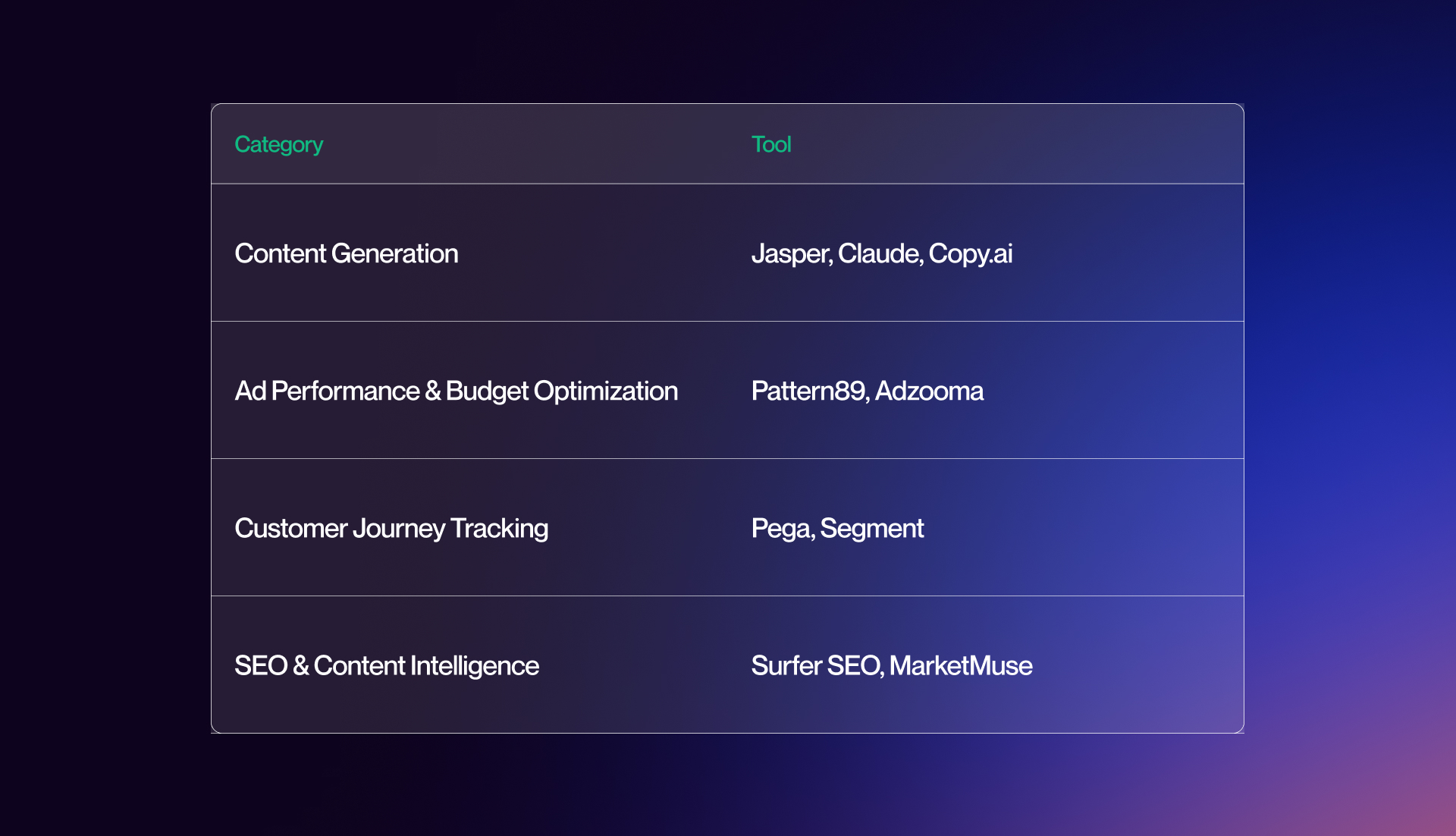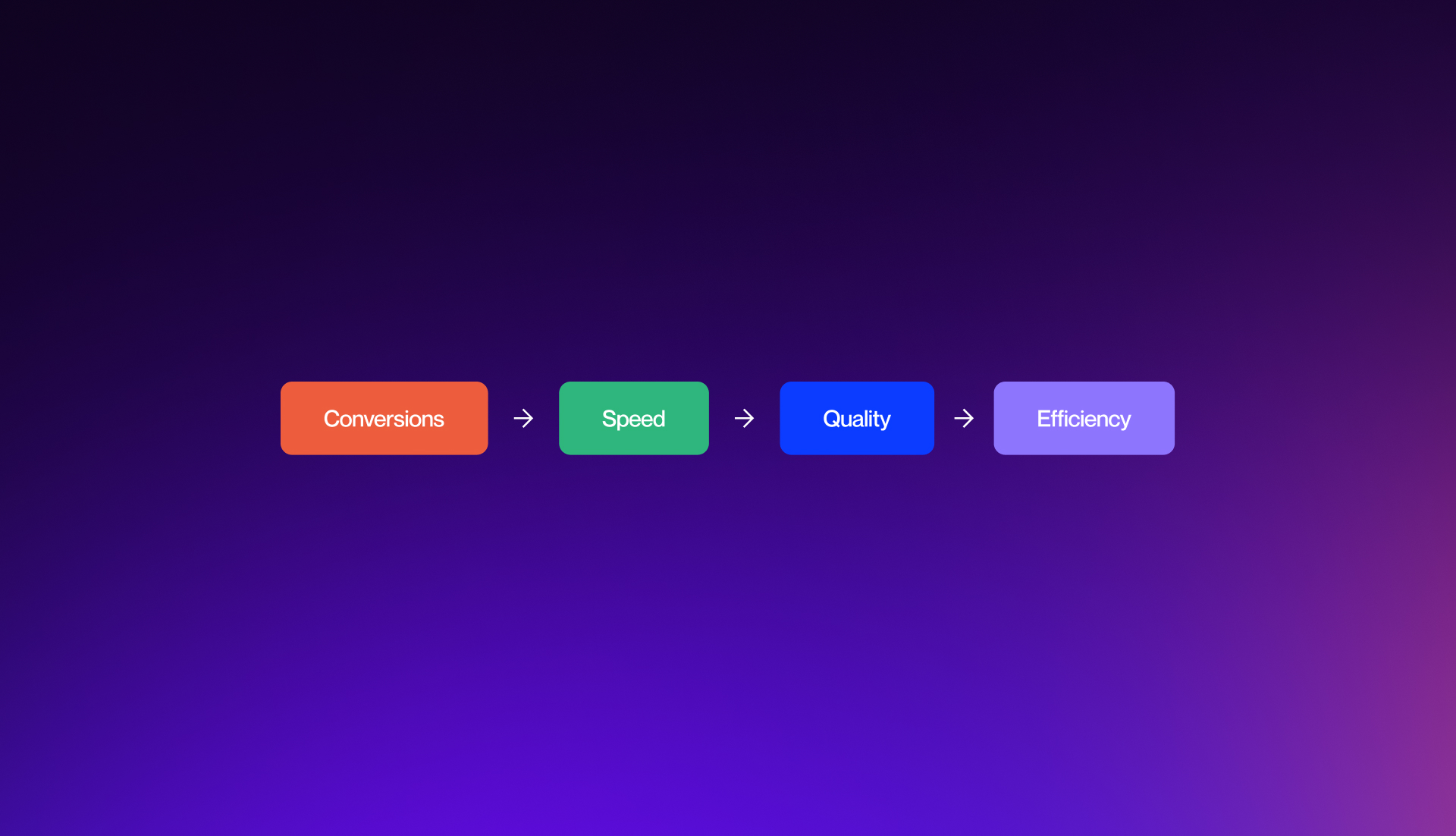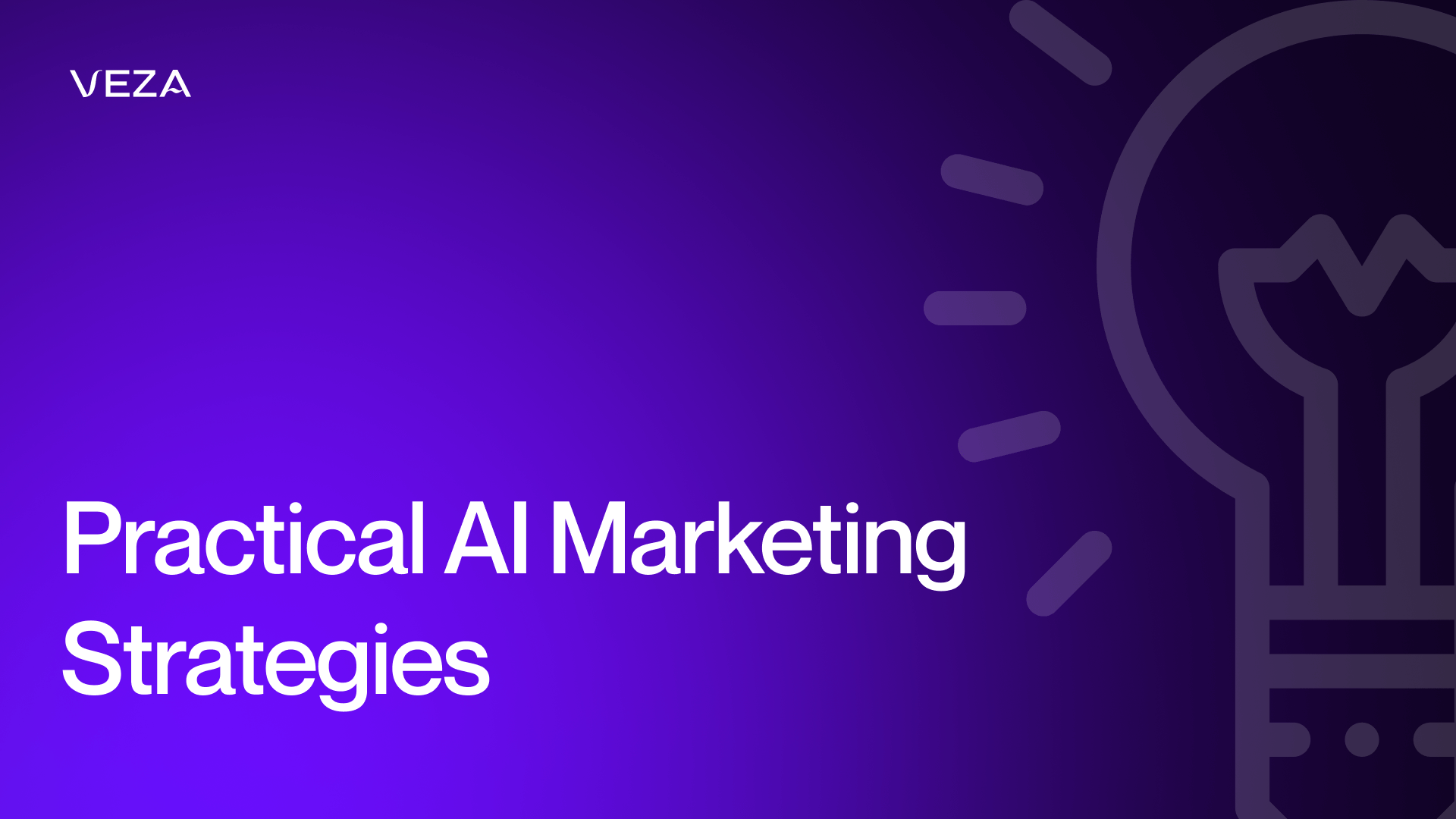Gone are the days of AI being a buzzword or just a hype, AI has wholly taken over the digital marketing industry. It has completely changed how Google functions, how we as marketers function.
Everything from SEO to branding. It's a powerful tool that, when used correctly it can transform the way that marketing agencies and teams operate. But how do you use this technology?
How do you make this work for you in your marketing strategies? How are we going to give our clients real results?
This article will be your guide to practical, actionable insights to integrate AI into your marketing efforts and change your marketing strategies. This helps marketing teams save time, optimize campaigns, and essentially drive better results.
What makes an AI Marketing Strategy practical?

When we discuss a practical AI marketing strategy, it's not some unattainable concept.
It means that we can create strategies that use AI tools. We already have access to them, and they can be easily acquired. These solutions solve real marketing issues, from repetitive tasks to complex data analysis.
This does not require a complete overhaul of what you're already doing. It's about using AI to enhance, not replace, your existing marketing efforts.
Marketers turn to AI now more than ever. The shift to AI has gone from an experiment to widespread adoption in marketing is completely undeniable.
AI is here to stay, and the reality is that it supports most of our daily marketing tasks from content creation to campaign analysis.
If you're still wondering what AI marketing is, you're already behind.
Eighty-six percent of marketers believe AI will completely transform the industry by the end of 2025. We are already before that due date. This isn't just about efficiency. It's about gaining a competitive edge.
AI's impact spans various marketing areas, offering significant improvements in efficiency and effectiveness.
So here are some core areas that it can elevate a marketing strategy:
Core Areas Where AI Can Boost Your Marketing Game
- Content Creation - Generate outlines, first drafts, social media captions, and even entire blog posts faster than ever.
- Customer Segmentation - Analyze vast datasets to identify granular customer segments based on behavior, preferences, and demographics.
- Budget Optimization - Allocate advertising spend more efficiently by predicting campaign performance and identifying optimal channels.
- Personalization - Deliver highly relevant content, product recommendations, and offers to individual customers at scale.
- Predictive Analytics - Forecast future trends, customer behavior, and campaign outcomes to adjust strategies proactively.
Here are some solid ways where AI can truly elevate any marketing game:
1. Start with the Strategic Campaign Alignment
The most critical step before you start developing a marketing strategy is aligning your AI usage with the core of the business model and its goals.
This isn't about chasing the latest AI trend or jumping on every new tool. It’s about understanding martech trends and solving actual pain points to get real results.
You need to ask yourself, what specific challenges do I want AI to address? Do I want to shorten a launch time, cut costs per lead, or, improve lead scoring accuracy, etc.? Clearly defining these objectives will guide your entire process of helping build an AI marketing campaign.
2. Audit your current Marketing Operations
To effectively integrate AI, marketing teams need to understand their current operations.
Review the existing tools and workflows to identify bottlenecks where your team is spending excessive time, performing repetitive tasks, or trying to create original content. Where do you have an abundance of data, but you're struggling to find the actual insights?
These are primary areas ripe for AI intervention. For example, if your team spends hours manually segmenting email lists, there's a clear signal for an AI-powered customer segmentation tool.
3. Define the Right Goals and Outcomes for AI
Goals that have no value lead to no results, so marketing teams need to define their goals.
Make those specific, measurable, attainable, and relevant. Make them time-bound – basically, (SMART) goals for AI initiatives.
These examples include reducing time spent writing emails by 40% within three months, improving lead scoring accuracy by 15% in the next quarter, and automating 75% of top-funnel content generation.
Include both qualitative and quantitative goals. Quantitative goals provide hard metrics for success, while qualitative goals help you understand the impact of the team, the creative output, and overall workflows. These defined outcomes are essential for measuring whether your AI marketing strategy will actually help.
4. Audit and Prepare Data
It comes down to bad or incomplete data. It's the fastest way to derail any AI marketing strategy. AI models are only as good as the data on which they're trained.
So here's a checklist for marketers to prepare their dataSo here's a checklist for marketers to prepare their data:
Centralize Your Data:
- Consolidate information from various sources (e.g., CRM, Google Analytics 4, social media analytics tools, email platforms) into a single, accessible location.
Clean and Standardize Your Data:
- Remove duplicate or outdated entries.
- Eliminate inconsistencies, redundancies, and irrelevant information.
Segment Audience Based on Behavior:
- Go beyond basic demographics.
- Segment your audience based on their actual interactions, preferences, and behaviors.
5. Choose the Right AI Tools for each function.
The reality is that the market is flooded with AI tools, and not everything will work for every marketing strategy.
You need to be selective and work with your specific marketing needs, as well as those of your clients. Mixing and matching specialized tools can give you some of the best results as opposed to getting bloated on an all-in-one platform.
Here are some platforms that can work:

For more on the best AI tools for marketing, check out our article on AI marketing tools
6. Build Small, Repeatable Workflows
Instead of attempting a full-scale AI rollout, start by building one or two solid, repeatable workflows.
Test, learn, and refine your approach as you go. For example, use ChatGPT or Copy.ai to generate three to five variations of an ad headline.
Run these variations through AI-powered A/B testing tools like Google's Ad Smart Bidding, set automated rules to shift your budget to the top-performing headline.
This approach makes implementing AI into your marketing strategy actually feasible, and it helps marketers who work solo or with a small team.
7. AI is made for Automation
Everyone knows this, but you still need human oversight. You cannot not have human eyes on your marketing campaigns.
Marketers need to see what's going on and what actually needs human intuition.
Veza Digital's SEO specialist, Mina, observes and says, "The problem isn't AI, it's how people use it. I've seen companies go all in on AI for content, SEO, even strategy, completely losing their voice in the process."
She continues and says “We used to write almost everything around keywords with search volume because that’s what made sense. But with LLMs, we finally have the freedom to create content that’s actually useful, even if it doesn’t rank in the traditional sense. It’s not about chasing keywords anymore.
It’s about saying something worth quoting. You can either evolve with the way AI is reshaping content- or get left behind. Traditional SEO won’t cut it anymore.
Relevance, trustworthiness, and originality are what LLMs look for now, and no amount of keyword stuffing can fake that.
Essentially, marketers need to have a deep understanding of a brand's voice and tone.
8. Monitor Performance and Set Up Feedback Loops

Once AI is integrated into your workflows, continuous monitoring is key. Set clear Key Performance Indicators (KPIs) to measure impact, such as:
- Conversion rates from AI-generated content
- Campaign launch speed improvements
- Lead quality enhancements
- Time saved on repetitive tasks
Monitor the suggestions provided by AI tools versus human overrides. Use these insights to retrain prompts, refine segmentation criteria, and improve the overall performance of your AI models. This mindset ensures your AI marketing strategy constantly improves.
9. Scale - Apply What Works Across Channels and Teams
Once you've found what works, scale it across your operations. Document your AI powered growth by creating internal templates and Standard Operating Procedures (SOPs).
This means outlining exactly what to document, like your "winning email prompt formula" or "best practices for AI-powered ad copy generation," and then training your team with clear guidelines and sessions for consistent application.
As teams get more comfortable with these AI tools, start considering where to integrate AI next, exploring areas such as creative production, influencer outreach, video editing, or even customer service chatbots.
10. Ethical AI in Marketing is A Must
As AI becomes more integral to marketing efforts, it's crucial to prioritize ethical considerations, transparency, and compliance.
Be upfront about AI usage when necessary, especially in customer-facing interactions like chatbots.
You also need to continuously monitor AI outputs for biases across gender, race, or other demographic groups, ensuring fairness and inclusivity in all your campaigns.
Furthermore, when it comes to data, strictly adhere to privacy regulations like GDPR and CCPA, exercise caution with sensitive customer information, and ensure all your AI tools are compliant.
AI is here to stay - Keep the Human Touch
AI tools versus humans – I mean, it's a fine line. Right? The reality is you can use these hand-in-hand.
You essentially have to think of it this way - we need to work with AI tools. Still, the reality is that the overall performance will be based on the eyes and minds of those involved in marketing strategies. Once AI is integrated into your workflows, marketing teams must closely monitor performance indicators (KPIs) to measure results.
AI helps marketers save time, but it’s not magic.
The most effective AI marketing strategy combines powerful tools with human intuition, empathy, and deep brand insight. It’s about leveraging AI to enhance our capabilities, allowing us to focus on the strategic, creative, and human-centric aspects of marketing.
Let’s Work Together!
Don't get left behind. Embrace the future with a marketing website. Contact Veza Today to Transform Your Digital Strategy!
.jpeg)

